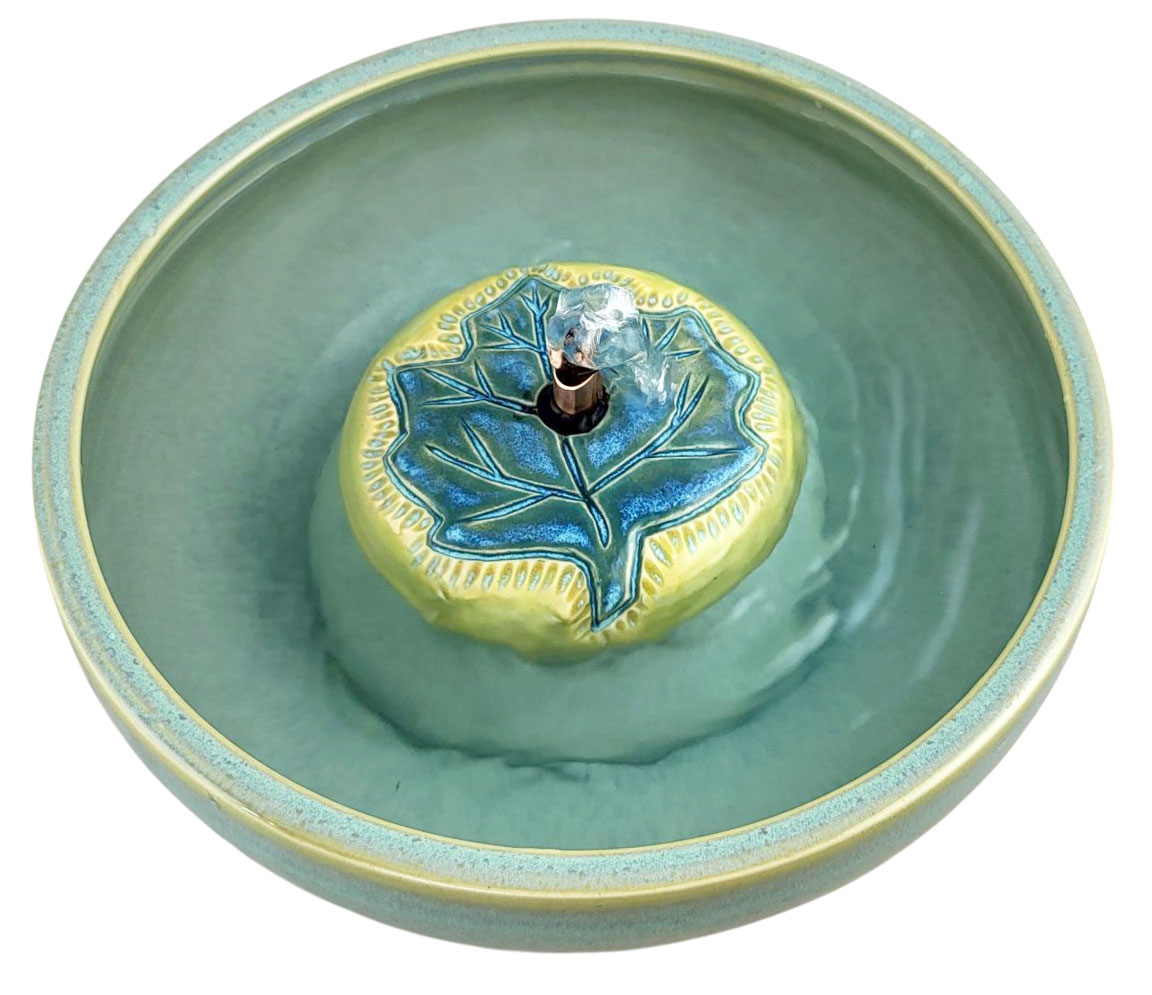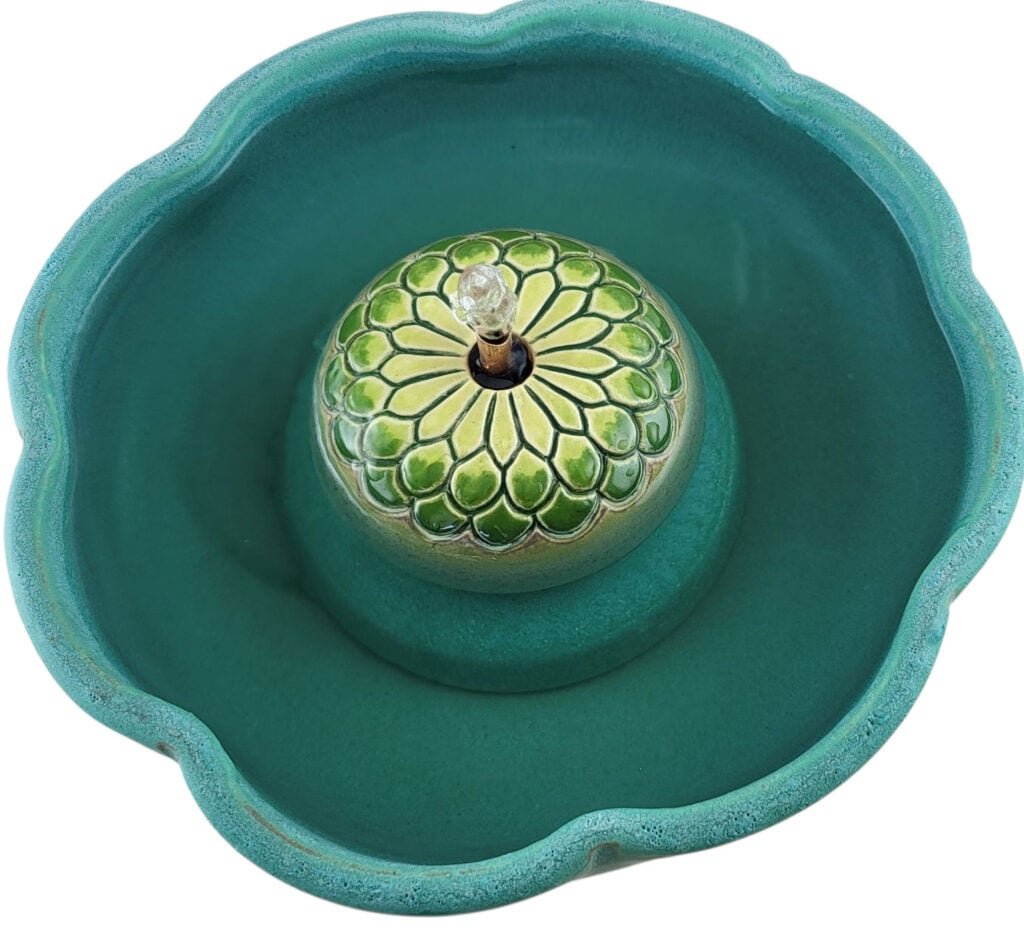No products in the cart.
100% Secure Checkout!
No products in the cart.





The ‘Domes’, as we call them, are one of the two types of center pieces we make for the fountains. The other is the Towers. Each is created through different processes and both come in many different styles and designs. Here we present the creation of the domes. Towers we present in another post.


The primary throwing difference between the two is that the towers are thrown right side up with the clay opened up all the way to the bat so that there is no bottom, while the domes are thrown upside down to about a quarter of an inch thick at the bottom and this becomes the top of the dome.
While the dome is being thrown, a groove is built into it to make it easy to pick it up from inside the fountain bowl – especially helpful when the fountain is filled, as glazes can be slipery when wet.

After throwing, the domes are left to dry for about a half a day, then cut off the bats and left to dry more, with the thinner rims and sides slightly covered to ensure even drying and no cracking. When sufficiently dry they are trimmed on the wheel and are then ready to be designed.



Unless we’re leaving a dome to be plain, we either build some ornamentation onto it or it is incised, or carved, with a design while still in the greenware stage. After bisque firing the design will either be painted with a glaze, or the design will be left and glazed with the bowl it is in, without a separate glaze-painting.
Some designs which are deep enough, and some glazes which break well and show good variation over texture, lend themselvese to this latter treatment, requiring no painting. (Keep in mind – painting means applying glazes to the designs, which penetrate into the clay and become part of it. It is not simply a coating.)
The dome with the handmade flowers applique below will be painted, once it is bisque fired. The other two are sometimes glaze-painted and sometimes simply glazed over with good effect. The Panji design (center dome below) is shown in the image beneath that with one simply glazed with the bowl it was for and the other glaze-painted with a harmonizing red under-glaze.




Once a piece has been bisque fired it can be glaze-painted. These glazes are specifically formulated for smooth application. (All our glazes are food-safe). We have many choices as to which glazes we want to use though we are sure that they harmonize or contrast pleasantly with our over-glazes used on the fountain bowls.
The notes you see inserted into the domes below state which glazes have been used on them. When we get ready to glaze fire the domes with their fountains, that information will be used to choose the fountain glaze. It is then recorded on the card which will follow the fountain through the entire process and then be retained in our files and become the permanent record for that fountain. If somone ever breaks it we can closly reproduce it and if someone else sees and wants that fountain we can closely replicate it. The next step in the process is to match up bowls with center pieces and we address that in our post on Bisque Firing.




